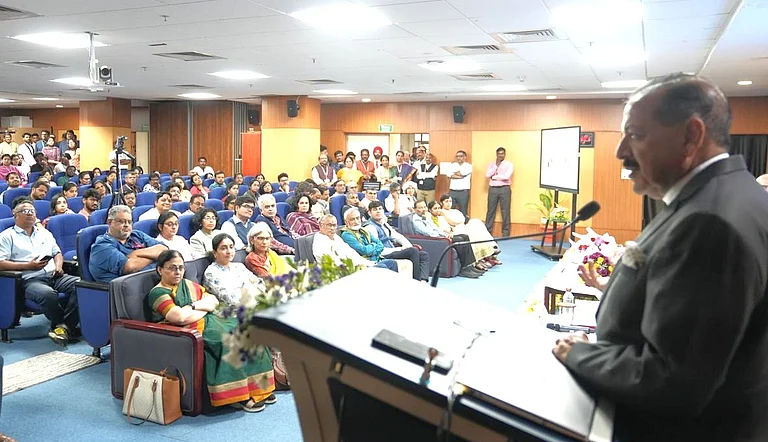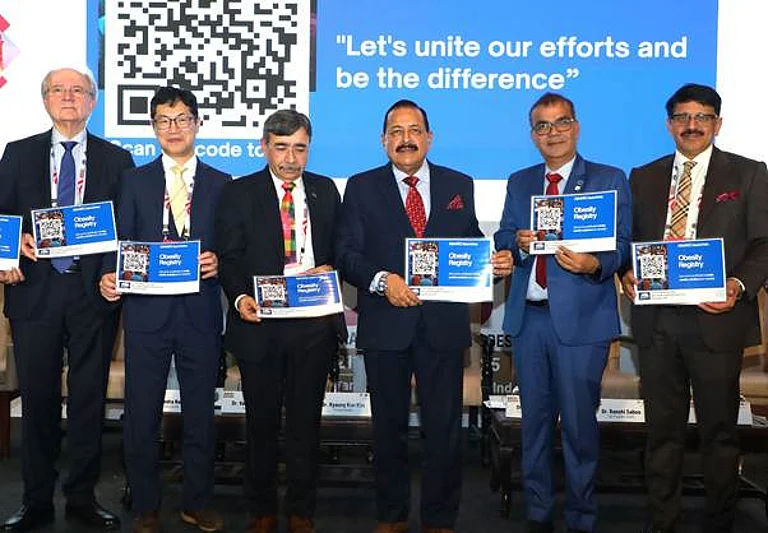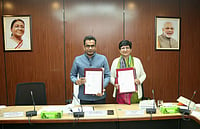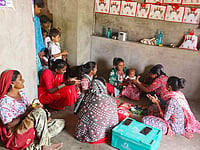Union Minister for Science and Technology, Dr. Jitendra Singh, praised the recently organized two-day CSIR Startup Conclave in Lucknow, describing it as a “benchmark model” of how India’s research labs are successfully translating scientific innovations into market-ready products.
He emphasized India's advancing leadership in herbal therapeutics and integrated medicine.
Dr. Singh, at the recently held conclave, highlighted that these developments reflect Prime Minister Narendra Modi’s vision of “Go Local, Go Global”, encouraging startups to help India expand its presence in the global herbal health market.
He stated, “India has the rich biodiversity and scientific capability required to become a global center for herbal medicine.” These comments were made during the event’s inauguration on September 15.
Among the significant innovations featured at the conclave were 13 herbal products developed by CSIR, including the anti-diabetic formulation BGR-34, derived from six time-tested herbs—namely Daruharidra, Giloy, Vijaysar, Gudmar, Manjistha, and Methi. The ayurvedic drug, scientifically validated by scientists from CSIR labs NBRI and CIMAP, is being seen not just as a way of managing blood sugar levels but also as a potential long-term aid in reversing diabetes. Meanwhile, Paclitaxel, derived from Arjuna tree bark, is for blood cancer, and Picroliv is aimed at treating fatty liver and liver cancer.
The minister also acknowledged the major role played by the Lucknow-based CSIR institutions NBRI, CIMAP, IITR, and CDRI in driving innovation in this domain.
Uttar Pradesh Chief Minister Yogi Adityanath and Deputy CM Brajesh Pathak also attended the event, visiting various exhibits and commending the contributions of Indian scientists. The state government expressed continued support for promoting homegrown and research-backed healthcare solutions.
Dr. Sanchit Sharma from AIMIL Pharmaceuticals pointed out that the global healthcare industry is undergoing a shift—especially in diabetes care—moving from symptom management to reversal-focused approaches.
Dr. Singh also remarked that Lucknow has been the birthplace of internationally recognized Menthol products and Mint tablets, and that Indian scientists are now developing innovative herbal products such as mouth fresheners to tap into new markets. Institutions like NBRI and CIMAP are advancing research on high-yield medicinal plant varieties, boosting farmers’ incomes and rural economies.
A key highlight of the event was the inauguration of India’s first Swastik-shaped Lotus Garden at CSIR-NBRI. This unique botanical garden showcases 60 lotus varieties from around the world and 50 species of water lilies. The facility uses advanced genetic and environmental techniques for conservation.
Among its notable features is the Namoh 108, a lotus variety with 108 petals, claimed to be the first of its kind globally, developed by scientists at NBRI.



























